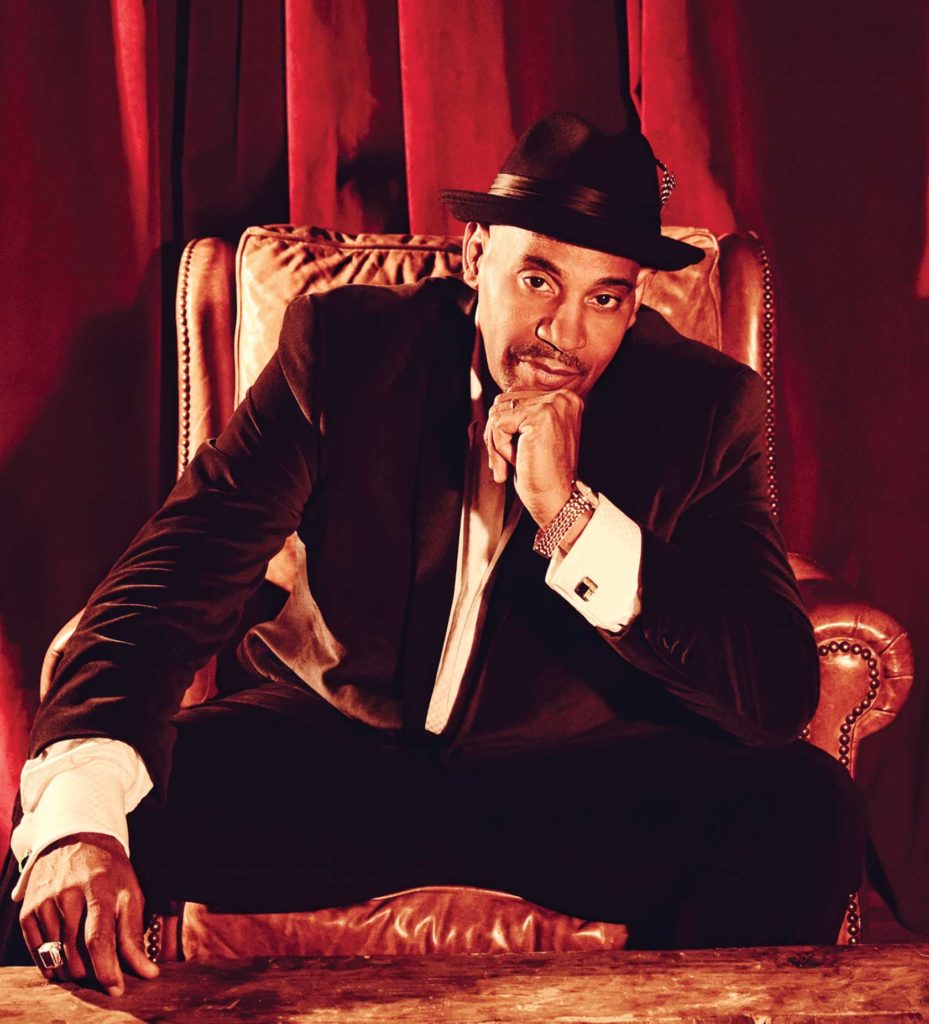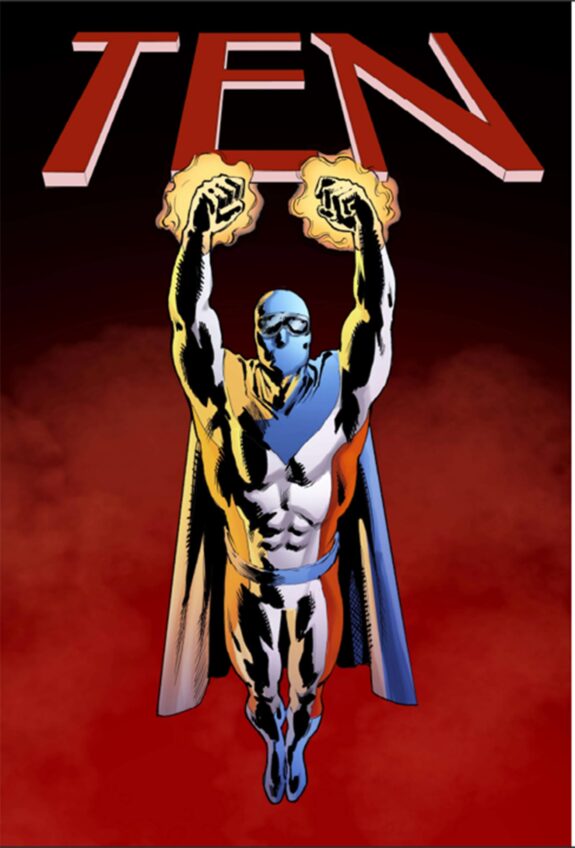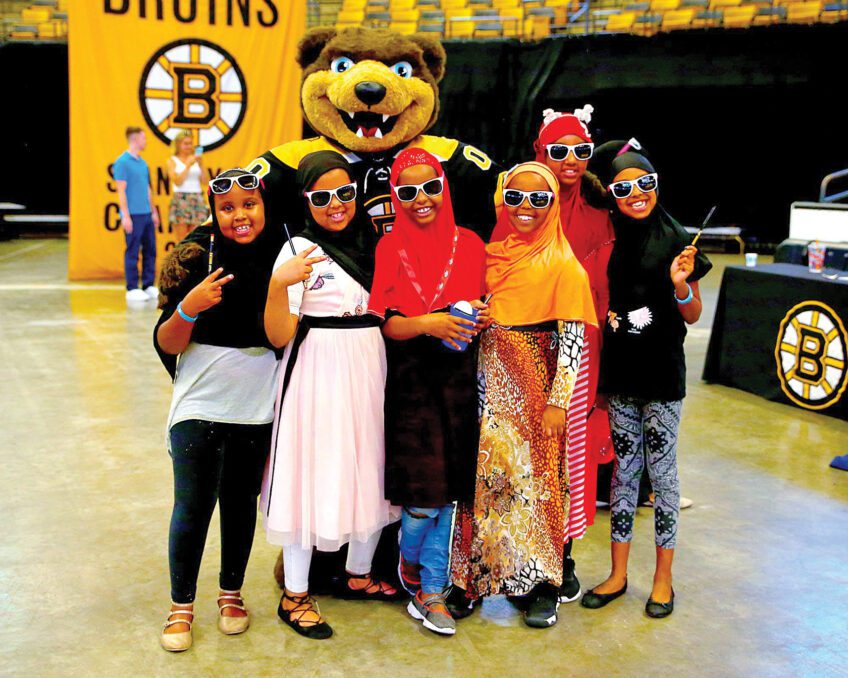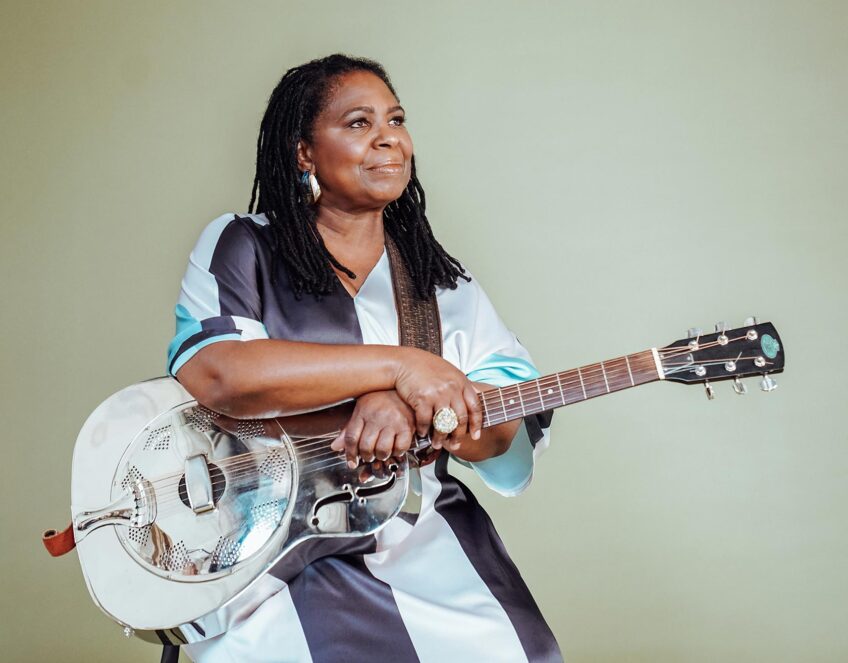
Jazz and soul vocalist Allan Harris is finding new audiences to add to his fan base that stretches back decades. A fixture of the NYC music scene, Harris has a new album out this year with all of the songs his own compositions, and he just completed a sold-out gig at Birdland, the legendary jazz club in midtown Manhattan. His soothing voice, his ability to tell stories through music, and his appreciation of Black history in his narratives have special resonance as we emerge a little bit from this stressful period.
The Banner caught up with Harris by phone from his home in Harlem.
Banner: “Kate’s Soulfood” was released on February 12. Tell us about that recording.
Allan Harris: “Kate’s Soulfood” was a restaurant that was developed and run by my aunt Kate, originally from North Carolina, right around the corner from the Apollo theater. I’d go there as a child on Saturdays and Sundays and see the performers who sang and danced at the Apollo enjoying her food. People like Duke Ellington, the Temptations, Jackie Wilson, and Sarah Vaughan. The place was a landmark. So this recording is a tribute to my childhood experiences as a young boy of color. It crept into my psyche and made me who I am today.
You’ve described your music as storytelling. How have the stories you tell changed over the years?
As a mature adult, I see things now as more factual. In my thirties, I was hopeful, jubilant and naive. I’m still hopeful, but I’m not as naive. As I get older, my imagination and music are also more centered. And the stories are more about others in my life — my community and loved ones. I’ve come to understand that pain is also the gasoline that moves us forward, it moves us away from the pain to the happiness, which is like porridge in my mouth.
An earlier recording of yours, “Cross that River,” describes the Black experience in relationship to the western expansion of the United States. What is that history as told through your songs?
We all grew up with the Harlem Renaissance, and the exodus from the South to the North. There are just as many folks who ventured across the Mississippi. The songs echo that experience, and are told through the eyes of a protagonist, Blue, who is a runaway slave.
Who are some of the musicians who inspired you early on?
Well, there is the legacy of jazz. And my mother was a classical pianist. Then, too, over the years, it was people such as Duke Ellington, Charlie Parker and Miles Davis. I heard Motown in my household. Later on, I enjoyed Jimi Hendrix, the Rolling Stones, Rod Stewart, you know, the British invasion. Right after school, I moved to Atlanta and got into Southern rock: the Allman Brothers, Poco, even the Eagles!
And who do you listen to these days?
Gregory Porter is one; Kamau Kenyatta, his wonderful producer, is my wonderful producer. It depends on how I’m feeling. It could be Mahler, if I’m in a languid mood, or Debussy. Sarah Vaughan, Elvis Costello, Joni Mitchell and, hey, Doris Day!
Any advice to up-and-coming vocalists?
I would tell them: You have a gift, not to be squandered. And out of the box, not everyone will like you, so don’t take that personally.
You just wrapped up a gig at Birdland. How did the audience change since before the pandemic?
At first, the audience was kind of reticent, but by the second song? It was almost like seeing an old girlfriend, someone you’ve been married to and then divorced from, and running into one another in a cafe. At first, you’re not sure what to say to one another, you still love one another, but … but after that cup of coffee, or second song, it was like being back at the high school prom. As if we had never left one another.






